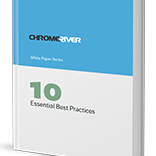 When it comes to hiring finance staff members, the traditional hiring process may not be enough to ensure you’re getting the best candidate for the job. Candidates may shine at the interviews, ace your proficiency tests and amaze with their litany of technical skills, but you won’t really know what they're all about unless you throw a real-world financial dilemma into their lap.
When it comes to hiring finance staff members, the traditional hiring process may not be enough to ensure you’re getting the best candidate for the job. Candidates may shine at the interviews, ace your proficiency tests and amaze with their litany of technical skills, but you won’t really know what they're all about unless you throw a real-world financial dilemma into their lap.
That’s where a case study can come in, one of the proven hiring methods enjoyed by the railroad industry giant CSX Corp. This Fortune 500 company hires about 10 financial staff members each year, and the ones who get in are those who perform well on the case study.
Since 2007, CSX has been using the same fictional case study to challenge candidates, who present their analysis and recommendations before a panel of CSX financial executives. How candidates perform on the case study can count for up to 50 percent of the determining factors that get them hired.
How the Process Works
- Create a case that has nothing do to with your industry or function: This move ensures you are evaluating the behavior strength of your candidate, rather than his or her knowledge and expertise in your industry.
- Establish a fictional company, giving the candidate background information on the company, a rundown on its present circumstances and a set of recent financial statements. The fictional company created by CSX is trying to determine if it would be in their best interests to rebuild an existing plant that was recently destroyed by fire in Southern California, open a new location in Florida or move a Western plant into Mexico.
- Have the candidate make a presentation for a panel of your financial executives, preparing themselves to defend their analysis and answer questions. In the case of CSX, the presentation consists of a two-page memo that outlines their financial recommendations and a 10-page PowerPoint presentation.
Creating a Solid Case Study
Additional tips from CSX can help guide your company when it comes to creating a case study of your own. Make sure your case study:
- Makes candidates use qualitative evidence, such as customer behaviors and feasibility, rather than relying solely on financial analysis for their recommendation
- Touches on market dynamics, such as pricing pressures, customer segments
- Does not have only one “right” answer
- Can be feasibly analyzed in a limited amount of time
How to Determine the ‘Winners’
Determining which candidate performed best in their case study means assessing which one most effectively exhibited the communication behaviors your company finds most important. The final decision for CSX rests on the candidates’ performance in 13 distinct categories, with the five traits most important to CSX holding the most weight. These are:
- Can clearly and concisely express his or her views
- Anticipates potential questions and prepares answers in advance
- Uses analogies and stories to get his or her point across
- Offers solid arguments to support views
- Not afraid to constructively challenge goals and assumptions of others
Tips and Tools for Objective Scoring
Because CSX has been using the same case study for hundreds of interviews, the company has been able to establish a scorecard that helps keep scoring as objective as possible. Evaluations are based on the quality of the candidate’s:
- Assumptions
- Analysis
- Presentation
- Final recommendations
Each category contains several questions that help determine the candidate’s overall score, which gives them a grade based on a scale that runs from 1 to 4. While candidates rarely score a 4, those who are hired usually rate a 3 to 3.5.
Other ways to keep your scoring objective and accurate include:
- Creating detailed definitions of the communication behaviors you’re seeking
- Clear differentiation between behaviors the candidates must have versus those that would be an asset but not necessarily a requirement
- Presenting real-life situations during interviews for candidates to address
- Training panel members on scoring practices and basing evaluations on the standard scorecard
- Performing immediate and specific behavior-based assessments after each candidate, rather than waiting until the end of the day to informally discuss the day’s lineup
Once you hire the best candidate for the finance position, you can give them the best tools for the job with the online expense reporting and invoice management services of Chrome River.
Subscribe
Latest Posts
Posts by Category
I just love the Chrome River application. I could probably sell it! Finance Administrative Coordinator Law Firm, 800 Employees
Can’t we just move year-end, so that we can roll out Chrome River sooner!? Financial Systems Director Law Firm, 300 Employees


Comments